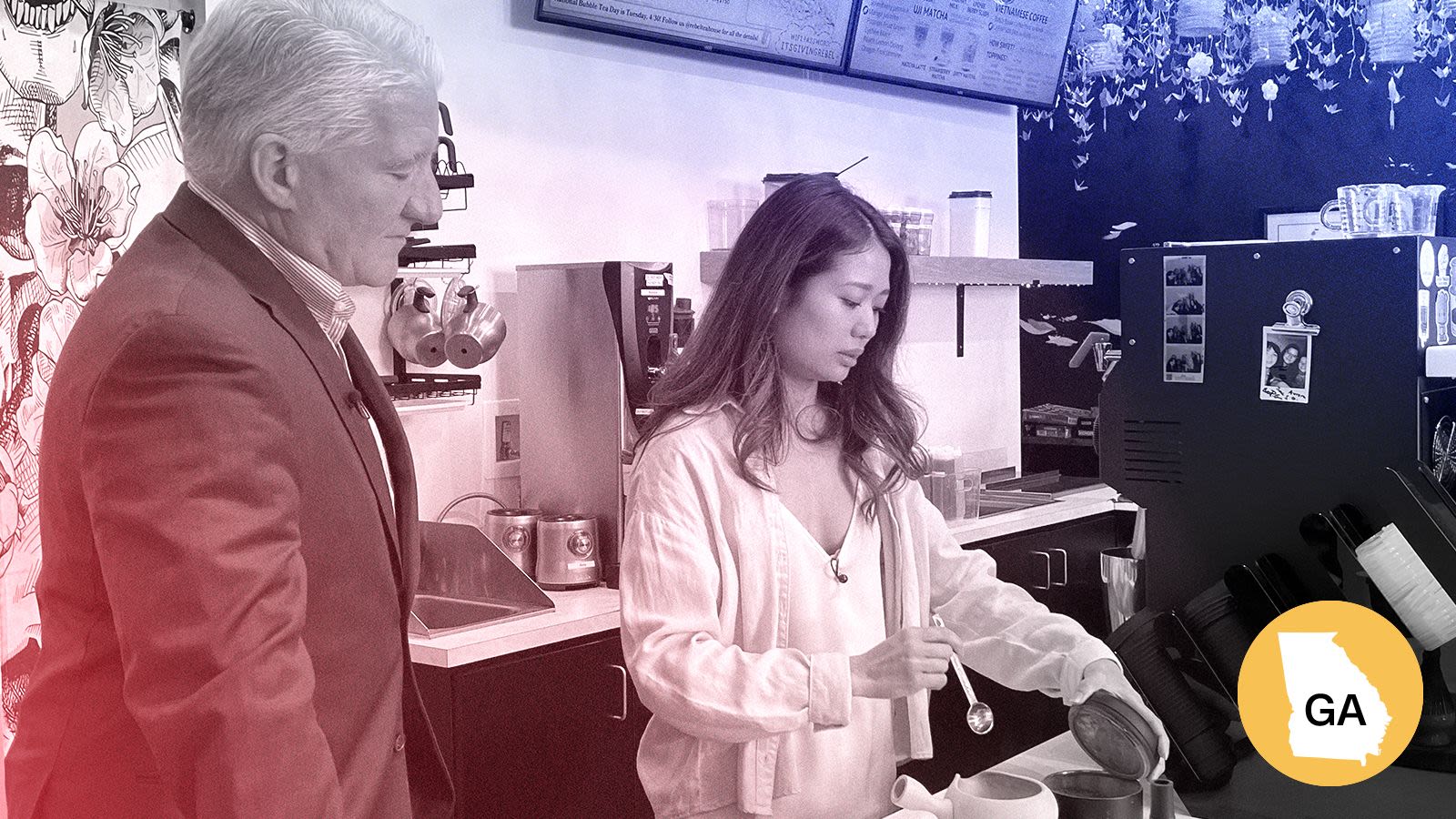Christine Nguyen, 29, a former neuro ICU nurse, traded her scrubs for an entrepreneur’s hat amidst the Covid-19 pandemic. She now runs Rebel Teahouse, a boba tea shop in Decatur, DeKalb County, a growing Atlanta suburb that played a significant role in flipping Georgia blue in the 2020 elections.
Nguyen, who was on the frontline during the pandemic, found herself in the midst of debates about vaccination. The stress and the constant exposure to death led her to leave her nursing job. Now, she finds joy in her new venture and believes she can contribute positively to her community.
Despite her dissatisfaction with Trump’s handling of the pandemic and his caustic tone, Nguyen did not vote in the 2020 elections, citing Biden’s disconnect with her generation. However, she plans to vote in the upcoming elections and regularly allows a local voter registration group to set up tables at her shop.
Meanwhile, Jan and Celia Gardner, long-time residents of the DeKalb enclave of Dunwoody, have witnessed the political shift in their community. Once a conservative stronghold, the Gardners now describe it as a split community. Despite their wish for Trump to tone down his rhetoric, they remain loyal Republicans, viewing Biden as weak and believing Trump would lower taxes and improve border security.
DeKalb County’s demographic and political shift is reflective of the broader suburban shift in America. The county’s education level has increased, with 47% of residents now holding a bachelor’s degree or higher, compared to 36% in 2000. This shift is believed to be a significant factor in the county’s political evolution.
In Gwinnett County, the suburban shift is even more pronounced. The county’s population has grown significantly, becoming more diverse, and the percentage of residents with at least four years of college has increased. These changes have resulted in a shift from a Republican majority to a Democratic one.
Kim Cavaliere, a school nurse who moved to Gwinnett County two decades ago, has lost faith in both national political parties and voted for third-party candidates in both 2016 and 2020. She is concerned about Biden’s age and Trump’s erratic behavior but is open to reconsidering her stance if Georgia could settle a close race.
On the other hand, Carey Fulks, a part-time substitute teacher and DoorDasher, is determined to keep Georgia blue, despite his wish for a different choice. He is skeptical about Biden’s portrayal of the economy as booming and describes his motivation to vote as “more against Trump, probably.”
Meanwhile, in rural Hall County, Matt Vrahiotes, a Christian, conservative, Republican, is finding it harder to pick a candidate that aligns with his beliefs. He supported Florida Gov. Ron DeSantis in the GOP primaries and wishes someone other than Trump had won. His qualms about Trump have him shopping for alternatives, including independent candidate Robert F. Kennedy Jr.
As a small business owner in a purple state, Vrahiotes is aware of the need to tread carefully. He understands that every shift matters and that a third-party vote in Hall County could, in the end, help Biden. However, he believes in voting according to his conscience.
Georgia’s newfound battleground status and the political leanings of his customers have made Vrahiotes cautious about revealing his voting choice. He acknowledges the potential impact of his political stance on his business and the difficulty of playing the middle in a divided society.

